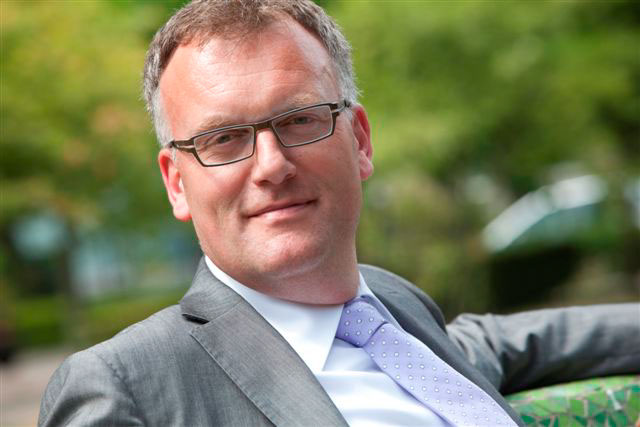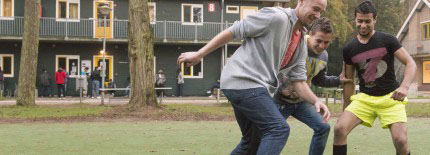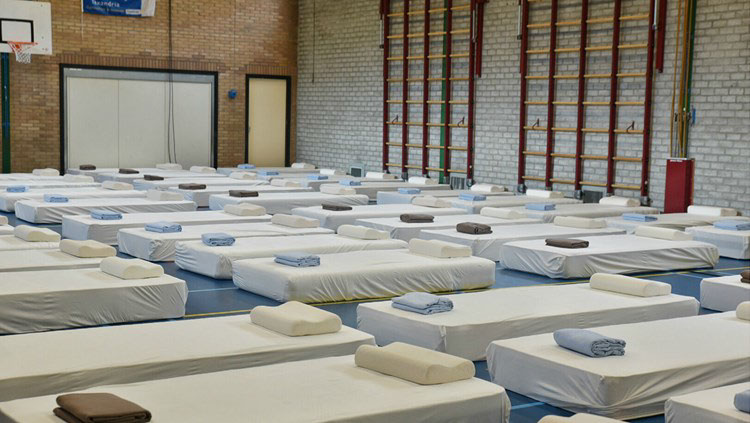Protection of refugees in their areas of origin interview with Hans Janssen, Mayor of Oisterwijk
Whether in my own municipality, or far away, I firmly believe that people who are forced to flee their country and leave everything they have behind, deserve our support
Hans Janssen (EPP/NL), European Committee of the Regions rapporteur on the "Protection of refugees in their areas of origin: a new perspective 2016"
Why do you believe a new perspective on the protection of refugees in their areas of origin is needed?

Let me point out first that, when talking about ‘area of origin’, my Opinion refers to countries neighbouring the country that people fled from.
By far the highest number of refugees flee to and stay in their area of origin. This is now the case with Syrian refugees, and has been the case with Afghans in Pakistan, Burundians in Tanzania or Somalians in Kenya
Most Europeans and European governments have never paid much attention to this phenomenon, until the Syrian crisis.
In 2013, I had the privilege - together with French, Turkish and Dutch colleagues - to be part of a mission of United Cities and Local Governments, UCLG, to assess the situation of refugees in Turkey, Lebanon and Jordan. It impressed me a lot how the Syrian refugees have to try and build a new life, geographically speaking not far from home, and yet so far from the lives they lead till recently.
Protection of refugees in their areas of origin is now widely considered an important element in dealing with the large number of people that are forced to flee. The Opinion I drafted states that
if we want this to be a human and sustainable part of the approach to the refugee crisis, we need to invest a lot more in helping people to build a future and a life in dignity in their region of origin
This requires a different approach from the initial emergency aid: a much more integrated and long-term approach in which the needs of the refugees and the needs and realities of the host communities are both taken into account and connected.
What is the role that European local and regional authorities can play in such approach?
Humanitarian organisations are primarily focused on providing immediate care, which is highly relevant of course. But in many cases they do not take into account the impact of large numbers of refugees on their host communities.
Most Syrian refugees in Turkey, Lebanon and Jordan do not live in camps, but in towns and cities. Because of their large numbers, the pressure on basic services like drinking water, waste collection, health and education increases
Rental prices go up, the labour market is distorted and so on. All that easily leads to social tensions among refugees, between refugees and host communities, and within host communities.
Local and regional governments in the host countries often face big problems in addressing all these challenges: in many cases their mandate is not clear, they lack the necessary financial or human resources, or humanitarian organisations and NGOs basically ignore them.
European local and regional authorities can help their colleagues by advocating for a more structural approach to protection of refugees in their areas of origin, with full recognition of their important role
Some are already involved in capacitating their colleagues. To give an example: the Dutch cities of Amsterdam, The Hague and Almere, together with the Association of Netherlands Municipalities (VNG) are providing technical assistance to local governments in Jordan and Lebanon, as part of a 9 million Euro project for support to refugees and host communities, funded by the Dutch government.
What could be an advantage for your municipality should the proposed actions take place? How much is your Oisterwijk involved in the reception of refugees?
I believe that protection of refugees in their areas of origin must be part of a holistic approach to care for refugees. It should not be used as an argument to deny all people the right to apply for asylum in Europe. In my municipality, Oisterwijk, we have had for some 20 years now a centre which houses around 450 asylum seekers and refugees.
Among them are two groups who require special attention. First: among the 450, 144 places are assigned to unaccompanied minors. Last year there have been tensions between this group and local youth, who both use the same places to hang out. In order to overcome those tensions we organised special meetings for girls and for boys, in which they could get to know each other in an informal way.

The other group that requires special attention is the group of people who have only just arrived in The Netherlands and who will be accommodated elsewhere after 13 weeks. In those 13 weeks, they learn the basics of Dutch language, how to move around in traffic, by bicycle and so on.
Apart from this centre with 450 places, Oisterwijk offered at the end of last year an emergency care for 50 refugees in a sports hall, when all the other centres were completely full. This raised a lot of positive energy. Within our municipal organisation the staff involved were highly motivated to make it run smoothly, and inhabitants took many initiatives varying from organising a soccer event, to providing a TV and leisure items.

Whether in my own municipality, or far away, I firmly believe that people who are forced to flee their country and leave everything they have behind, deserve our support.
Local and regional authorities, as sphere of administration, as service providers, but also in the sense of local leaders, have an important role to play in this respect